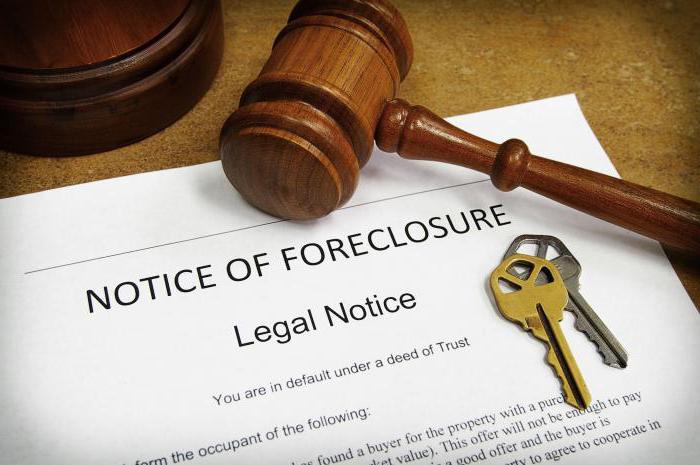The problem of alimony in the modern world is particularly acute. The fact is that most parents who remain to raise children simply do not receive payments. Moreover, they have an official paper confirming the obligation of the second parent to send a certain amount monthly. Such a situation is not uncommon. Many women do not know what to do and where to go. It should be noted that the law is on their side. The Family, Civil, Administrative and even the Criminal Codes of the Russian Federation punish for irresponsible treatment of payments. So, every time the debtor misses the payment, he is charged a penalty for alimony. From this moment on, he has additional obligations.
What is a child support penalty?
Many people know that late arrears are charged. Its final value depends on the number of days during which a person did not pay for services. To encourage the payer to fulfill his financial obligations, the Family Code has a clause regulating liability for violations.
Forfeit - the amount of money recovered in case of non-compliance with the conditions of payment of alimony. The size depends on two components: the amount of payment and the delay. Why is a forfeit an effective remedy? Because it is not exacted in favor of the state, but in favor of the child. Thus, two goals are achieved simultaneously - the discipline of the discipline of an irresponsible father and the compensation of the material needs of the baby. In addition, the penalty acts as a tool to protect the legal rights of the child.
How does a forfeit appear?
There are two possible reasons for its occurrence: untimely payment of alimony or payment not in full. The penalty is charged only to those who have relevant executive documents in their hands. This refers to a court order or a voluntary agreement to make payments, certified by a notary. It should be noted right away that without these official papers a penalty will not be charged.
A parent who raises a child alone and does not receive payments, although a writ of execution has been issued, should contact the bailiff service. Judicial practice for a penalty of alimony shows that with such a development of events, it is possible to recover without a statute of limitations. If you do not contact the bailiffs, then the delay is considered only for the last 3 years.
Accrual principles
Penalty as liability for non-payment of alimony is a good tool of influence. Even if the amount is small, the psychological factor is triggered. It is accrued from the first day of delay. In general, there are several principles for calculating and recovering such payments:
- As already noted, the day after the scheduled payment date, a penalty is charged. It turns out that if the father repays the debt in a timely manner, the mother has the right to go to court for help in solving the problem. In practice, the penalty for alimony usually amounts to several hundred rubles, and not everyone is ready to swear and argue because of this.
- In order to recover the penalty, it is necessary to fulfill two conditions: the existence of a writ of support on maintenance obligations and violation of this agreement.
- When contacting the bailiffs, the accrual and recovery of the penalty for alimony occurs without regard to the statute of limitations. This means that the recipient, who does not receive the funds in a timely manner, can demand them together with late payments at any time.
Order of punishment
Consider a situation where a person refuses to pay child support. Further actions of the second parent depend on whether an alimony agreement has been concluded or a court decision has been issued. It is still necessary to find out whether the writ of execution is in the bailiff service.
If the option is positive, you should contact the bailiffs and ask them to calculate the penalty. If for some reason the writ of execution is with the debtor, you need to write a statement about the opening of the enforcement proceedings. This is also done by bailiffs. Be sure to attach to the application a court decision on the payment of alimony. Only after a positive answer is received, it will be possible to file a claim directly on the calculation of the penalty.
The fine for non-payment of alimony is considered by bailiffs according to a special formula. However, this does not prevent the recipient from making the calculation himself and checking with the official one. After determining the specific amount, you can apply to the magistrate's court.
Calculation of forfeit in hard cash
As already noted, the amount of payment depends on the amount of debt and the period of non-payment. In order to determine a specific amount, it is necessary to calculate the number of days since the last payment. It does not take into account the month of payment, but the one indicated in the appointment. The penalty for alimony is half one percent of the amount owed. For example, if the debt is 1000 rubles, then the penalty for 1 day of non-payment will be 5 rubles.
We carry out the calculation using a specific example. The receipt states that the alimony for March was paid in full (1000 rubles). The next payment is due by April 30th. Since May 1, the delay has begun. It turns out that for 1 day the penalty is 5 rubles, for 31 - 155 rubles. In June, 30 days, which means that the penalty for alimony will be equal to 150 rubles, etc. If the debtor partially paid, then the money goes to pay the total debt.
Forfeit when paying in parts of profit
If the recipient has the opportunity to find out about the income of the debtor, then determining the penalty becomes much easier. A trial of a child support penalty is easier if there is information about the payer's profit. The calculation of a specific amount will be carried out according to the above algorithm.
However, in court practice on a child support penalty, there are many cases where the recipient does not have information about income or the debtor does not work at all. Then the amount of payments and fines will be calculated taking into account the average wage in the region of the Russian Federation in which child support is collected. These data can be found on the official website of the State Statistics Committee. The principle of calculating the penalty remains the same as in the first case.
Alimony forfeit claim
As you know, a well-composed lawsuit is the key to a successful outcome. If necessary, you need to use the recommendations of experienced lawyers. The statement of claim for a penalty for alimony is made in accordance with the rules that are defined by the Civil Procedure Code of the Russian Federation. According to the legislation, the following information must be provided:
- name of the magistrate court;
- personal data, place of work of the plaintiff and defendant;
- certificate of marriage and divorce (if any);
- details of an alimony agreement or court decision on a payment obligation;
- amount of outstanding payments;
- calculation of the fine;
- claim for a penalty;
- signature of the applicant;
- filing date.
In addition, certain documents must be attached to the lawsuit. Among them, an alimony agreement or a writ of obligation on the obligation to pay, the calculation of the fine carried out by the bailiffs, as well as the receipt of payment of the state duty are mandatory. This is necessary so that the court does not doubt the possibility of charging a penalty for alimony. It is best to take a sample application from lawyers, they will also help to correctly record and execute everything.
Limitation period
It is worth noting that this violation does not imply a certain limitation period. The recipient has the right to request payment of a penalty for the entire period of non-fulfillment of obligations to support the child. The main thing is to correctly substantiate the claim and repulse the defendant's attempts to reduce the amount of the fine in accordance with the Civil Code.
The legislation does not determine at what point it is necessary to calculate the size of the penalty. If you focus on the Family Code, you can claim the payment of arrears and fines immediately after the defendant defaults on his obligations. It turns out that the applicant on the first day after the delay has a legal right to payments. Judicial practice of the child support penalty shows that they usually ask for help a year or several years after the delay begins.
Not many people know that it is possible to reclaim fines periodically. In this case, the debtor will be afraid that, without paying, he will immediately be involved in the trial.
Reasons for Default
There are different situations in life, and people are not always ready for them. Often something unexpected happens, and this makes it difficult to fulfill obligations. There are objective reasons that make it impossible to pay child support. These include the following points:
- the organization does not pay salaries for a long time;
- the debtor has lost his ability to work;
- the payer has lost his job, which means that the main source of income.
These reasons are not a guarantee of exemption from maintenance obligations. However, if you reasonably explain your position and attach all the necessary evidence, you can achieve a positive court decision. It manifests itself in a decrease in payments or a complete exemption from maintenance payments. The payer must prove to the court that he took all possible measures to prevent delays.
Actions of the payer if the penalty is too large
As you know, our legislation strictly applies to debtors and applies certain sanctions to them. If the alimony is not paid for a long time, the amount of the penalty may significantly exceed the main payment. There are cases when the default is due to completely objective circumstances. For example:
- the amount of monthly payments indicated in the writ of execution has become disproportionately high compared to real income;
- the payer's health has deteriorated significantly, he has lost his ability to work;
- the debtor lost his job and made every effort to find a new one.
If the payer is overtaken by a difficult life situation, he has the right to apply to the court with a statement to reduce payments, as well as demanding release from civil liability.
The grounds for this may be documents confirming the fact that the payer has taken all measures to fulfill the obligation, but to no avail.
Conclusion
Many believe that the penalty on alimony is so small that it makes no sense to start a trial because of a penny. Indeed, for a day or a month the amount is quite small, but if the payer does not fulfill his obligations for years, then the size of the fine can reach impressive figures. Often, a parent living with a child receives property in return for cash. This property will belong to the child, thereby it covers obligations for its maintenance.
In case of failure to comply with the requirements set forth in the writ of execution, a penalty for alimony is charged. Judicial practice shows that judges are rather skeptical about the requirement to pay astronomical millions of debts. Therefore, it is much more efficient to file multiple applications for partial payments. The lawsuit is filed by the parent living with the child and raising him, as well as his guardian.